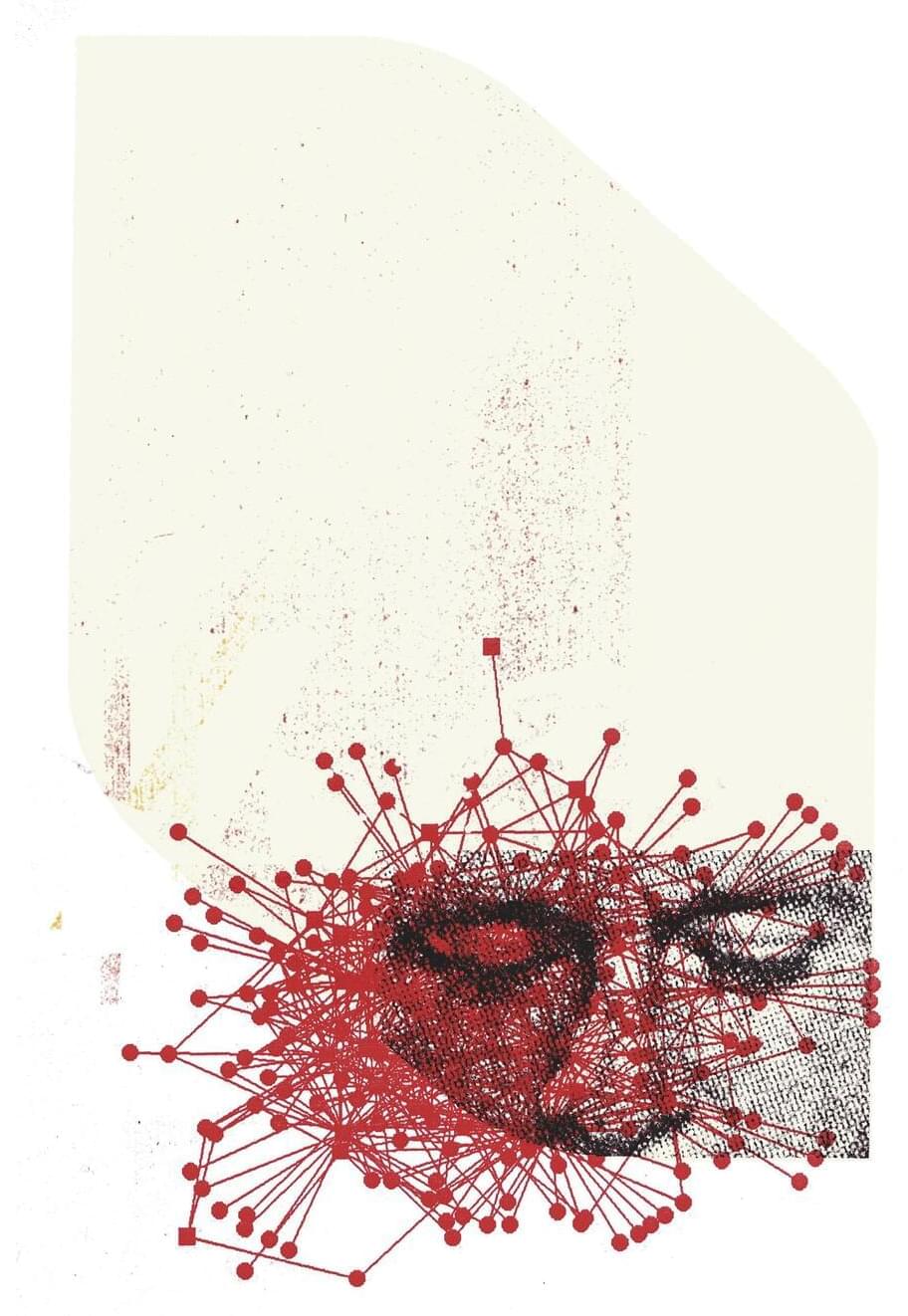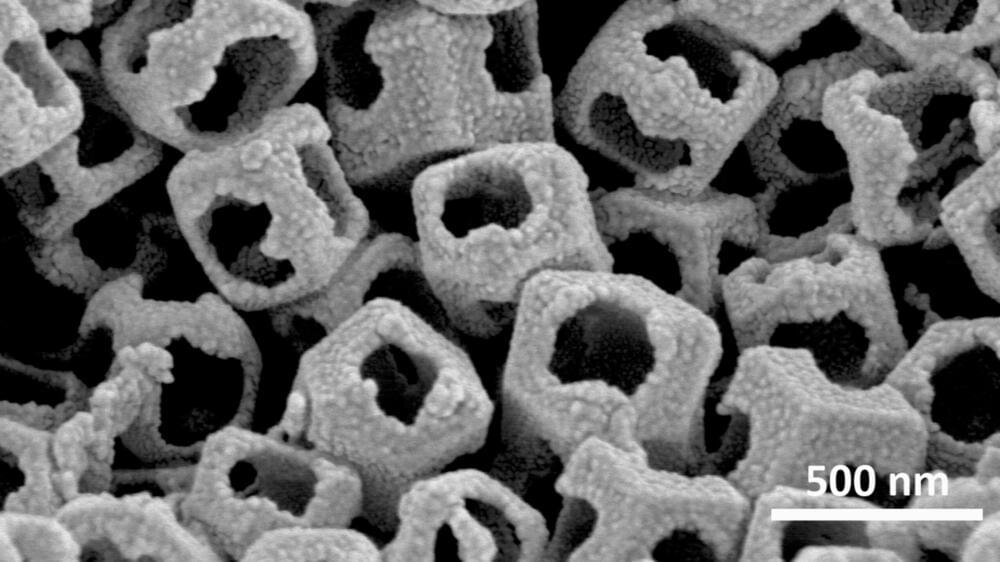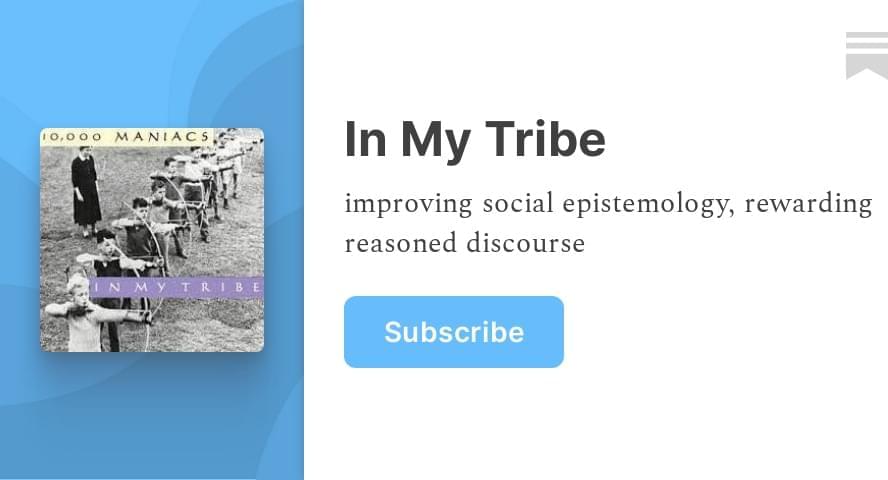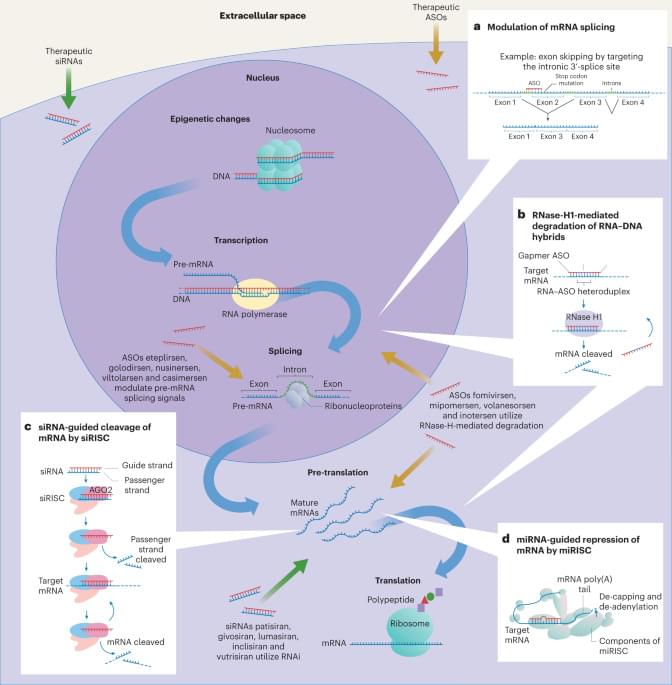Page 420
Mar 2, 2024
Chemical etching method opens pores for fuel cells and more
Posted by Dan Breeden in categories: chemistry, climatology, economics, sustainability
A chemical etching method for widening the pores of metal-organic frameworks (MOFs) could improve various applications of MOFs, including in fuel cells and as catalysts. Researchers at Nagoya University in Japan and East China Normal University in China developed the new method with collaborators elsewhere in Japan, Australia, and China, and their work was published in the Journal of the American Chemical Society.
MOFs are porous materials composed of metal clusters or ions interconnected by carbon-based (organic) linker groups. Varying the metallic and organic components generates a variety of MOFs suitable for a wide range of applications, including catalysis, chemical separation, and gas storage.
Some MOFs have clear potential for catalyzing the chemical reactions inside fuel cells, which are being explored as the basis of renewable energy systems. Because they don’t use fossil fuels, fuel cells could play a key role in the transition to a low-or zero-emissions economy to combat climate change.
In the case of artificial intelligence, we have a problem. There is no clear, settled definition of natural intelligence. If we are not sure what the natural thing is, how can we know what the artificial thing ought to be?
In fact, I want to claim that intelligence is not a thing at all. It is an ongoing process. It is like science. You should not think of science as a body of absolute truth. Instead, think of the scientific method as a way of pursuing truth.
One should resist the temptation to think of intelligence as a huge lump of knowledge that an entity possesses. Memorizing the encyclopedia does not constitute intelligence.
Mar 2, 2024
Researchers develop ‘foundational tool’ for understanding behavior of hydride superconductors at high pressure
Posted by Dan Breeden in categories: particle physics, transportation
Hydrogen (like many of us) acts weird under pressure. Theory predicts that when crushed by the weight of more than a million times our atmosphere, this light, abundant, normally gaseous element first becomes a metal, and even more strangely, a superconductor—a material that conducts electricity with no resistance.
Scientists have been eager to understand and eventually harness superconducting hydrogen-rich compounds, called hydrides, for practical applications—from levitating trains to particle detectors. But studying the behavior of these and other materials under enormous, sustained pressures is anything but practical, and accurately measuring those behaviors ranges somewhere between a nightmare and impossible.
Like the calculator did for arithmetic, and ChatGPT has done for writing five-paragraph essays, Harvard researchers think they have a foundational tool for the thorny problem of how to measure and image the behavior of hydride superconductors at high pressure.
Mar 2, 2024
RNA interference in the era of nucleic acid therapeutics
Posted by Dan Breeden in categories: biotech/medical, nanotechnology
With six approved drugs, siRNA is now an established therapeutic modality poised for expansion.
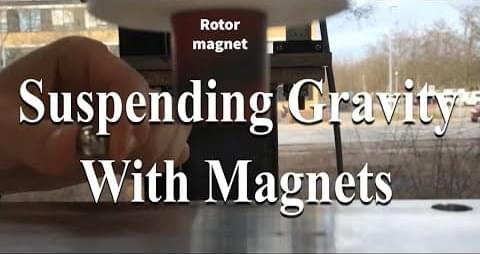
Join this channel to get access to perks: https://www.youtube.com/channel/UC4AkVj-qnJxNtKuz3rkq16A/joinDon’t forget to check out my companion channels TnT Omn…
Mar 1, 2024
Attitude Bias at Procrastination’s Root
Posted by Cecile G. Tamura in category: futurism
Do I want to do this now?
Summary: New research delves into how valence weighting bias—people’s tendency to prioritize negative or positive attitudes—plays a crucial role in procrastination. By studying individuals’ responses to tasks like tax filing and academic research participation, the researchers found a strong link between a negative-leaning attitude and the tendency to delay tasks.
Additionally, interventions that balanced participants’ valence weighting bias showed promise in reducing procrastination, suggesting that this psychological bias might be a key target for improving decision-making and task completion. This insight opens new avenues for addressing procrastination by adjusting how individuals weigh positive and negative signals when faced with decisions.
Mar 1, 2024
A Randomized, Controlled Clinical Trial Demonstrates Improved Cognitive Function in Senior Dogs Supplemented with a Senolytic and NAD+ Precursor Combination
Posted by Quinn Sena in categories: biotech/medical, life extension, neuroscience
 Aging reversed in dogs face_with_colon_three
Aging reversed in dogs face_with_colon_three
Age-related decline in mobility and cognition are associated with cellular senescence and NAD+ depletion in dogs and people. A combination of a novel NAD+ precursor and senolytic, LY-D6/2 was examined in this randomized controlled trial. Seventy dogs were enrolled and allocated into placebo, low or full dose groups. Primary outcomes were change in cognitive impairment measured with the owner-reported Canine Cognitive Dysfunction Rating (CCDR) scale and change in activity measured with physical activity monitors. Fifty-nine dogs completed evaluations at the three-month primary endpoint, and 51 reached the six-month secondary endpoint. There was a significant difference in CCDR score across treatment groups from baseline to the primary endpoint (p=0.02) with the largest decrease in the full dose group. There were no significant differences between groups in changes in measured activity. However, the proportion of dogs that improved in frailty and owner-reported activity levels and happiness was higher in the full dose group than other groups. Adverse events occurred equally across groups. All groups showed improvement in cognition, frailty, and activity suggesting placebo effect and benefits of trial participation. We conclude that LY-D6/2 significantly improves owner-assessed cognitive function and may have broader effects on frailty, activity and happiness as reported by owners.
The authors have declared no competing interest.
Mar 1, 2024
Insomnia: Insomnia is a common sleep disorder
Posted by Shubham Ghosh Roy in category: neuroscience
Insomnia is a common sleep disorder. If you have it, you may have trouble falling asleep, staying asleep, or both. As a result, you may get too little sleep or have poor-quality sleep. You may not feel refreshed when you wake up.
What are the types of insomnia?
Insomnia can be acute (short-term) or chronic (ongoing). Acute insomnia is common. Common causes include stress at work, family pressures, or a traumatic event. It usually lasts for days or weeks.
Mar 1, 2024
NASA Revives The Retro ‘Worm’ Logo For Next Mission To The Moon
Posted by Kelvin Dafiaghor in category: space travel

The Artemis II mission is scheduled to put people back into lunar orbit in 2025, while the Artemis III will see humans return to the lunar surface no earlier than 2026, per Space. America’s manned mission to the moon is the marquee news, but the real news here is that the logo we most associate with NASA is called the “worm.” Quick! Put on some Beastie Boys, y’all, because NASA is once again doing the worm.
Artemis II Boosters Receive Iconic NASA “Worm”
